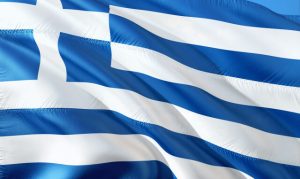Today on My Poetic Side we look at a poetry reading by Rupi Kaur and the celebrations of the 200th anniversary of the War of Independence in Greece.
Poetry Reading on TikTok Leaves Rupi Kaur Fans Divided
 Rupi Kaur, the Canadian poet who shot to fame on Instagram posted a video online of a reading of one of her poems and it was met with mixed reactions. The video had originally been posted on TikTok and showed the poet reading from “Milk and Honey” her debut collection.
Rupi Kaur, the Canadian poet who shot to fame on Instagram posted a video online of a reading of one of her poems and it was met with mixed reactions. The video had originally been posted on TikTok and showed the poet reading from “Milk and Honey” her debut collection.
The suggestive nature of some of the lines combined with Kaur’s gestures and tone in the 13-second clip has some listeners squirming. Indeed, one tweet suggested that she should be locked up for the video.
The short video which was posted by another Twitter user on Monday was viewed more than 2.7 million times. It is no longer visible on Kaur’s own Twitter account, there are only three videos there at present, all of which show the poet reading from “Home Body” her third book.
Whilst many people were not comfortable with the way in which the reading was conducted there were other commenters who were positive with their comments, suggesting that as the poet who wrote the piece Kaur was simply reading it as she felt appropriate with the relevant emotions and rawness. Some praised her confidence.
Kaur who rose to fame via social media platforms is known for the unconventional formatting of her poetry.
Philhellenism Celebrated on Eve of 200th Anniversary of War of Independence
 Through the medium of poetry, Greece has been honouring philhellenism just a few days before the day that marks the 200th anniversary of the start of the country’s War of Independence.
Through the medium of poetry, Greece has been honouring philhellenism just a few days before the day that marks the 200th anniversary of the start of the country’s War of Independence.
Philhellenism is a love of the culture of Greece, the friendship of the Greek people and had a significant impact on the world as the Greeks battled against the Ottoman rule. It is a combination of the word for friend (philos) and the word for Greece (Hellas) and was a 19th-century intellectual movement.
On 21st March, World Poetry Day, the president of Greece invited the ambassadors of nine other countries who supported Greece and whose poets were inspired by the revolution to recite works that were relevant. There were many such famous poets who were moved by the events that took place and penned verse.
The British Ambassador to Greece recited Lord Byron’s “January 22nd, MisSolonghi”, the poet was a prominent member of the philhellenism movement. Not only did he join Greece in their battle, but he also raised funds for the war and aged 36 died in the city of Missolonghi shortly after writing the poem.
The Russian poem of choice for the occasion was “Arise, Greece” by Alexander Pushkin the poet and novelist.
25th March is the day that will mark the 200 years since the beginning of the war that led to the freedom of Greece. Due to the pandemic, however, the majority of the celebrations will take place online. There will be a traditional military parade in the centre of Athens, but this will only be attended by a few officials. HRH Prince Charles, Camilla, Duchess of Cornwall and the Russian Prime Minister will be amongst those attending in person.


You must register to comment. Log in or Register.